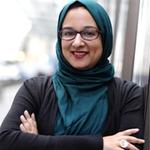Who Helps the Helpers? Behind the Scenes of the Nonstop Earthquake Relief Work in Turkiye & Syria
Current Events
|
Apr 18, 2023
|
5 MIN READ
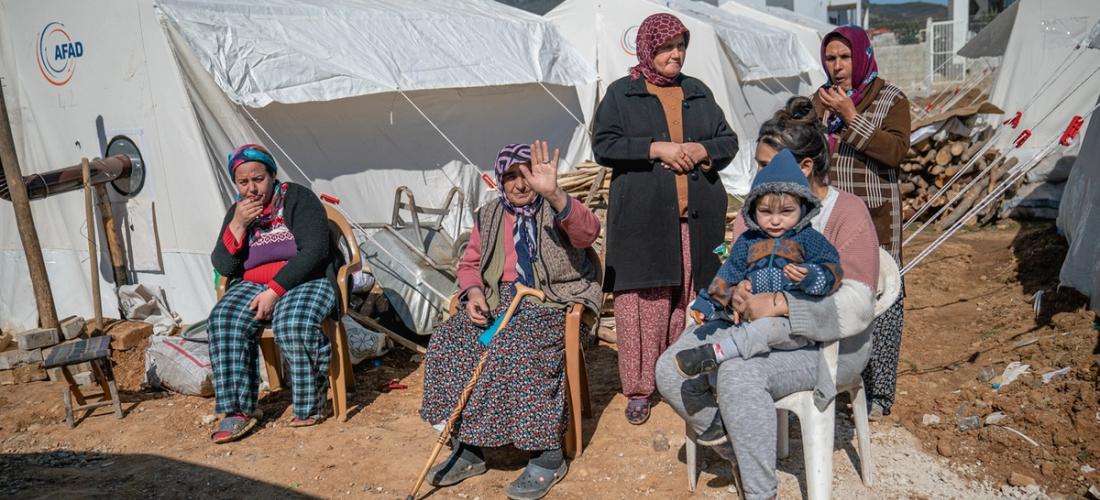
Image source: Islamic Relief USA
Editor’s Note: This Ramadan, Haute Hijab is continuing its partnership with Islamic Relief USA to help support earthquake relief efforts in Turkey and Syria. This article is the third in a three-part series focused on this longer-term relief work, the stories of survivors and what it takes for an organization like IRUSA to plan out and execute long-ranging relief projects. Read the first part here and the second part here. Please reap the rewards of supporting work like this in Ramadan and click here to donate. In this last week of Ramadan, HH is also donating a portion of the proceeds from all our sales to this earthquake relief campaign.
When the call, text or email comes to Islamic Relief USA aid workers regarding a catastrophic event or natural disaster somewhere around the world, it doesn’t matter the day or time. It’s go time.
On February 6 of 2023 at 4:17 a.m. local time,a 7.8 magnitude earthquake followed by another massive quake rocked southeast Turkey near the Syrian border. The quake struck about 11 miles deep in the Gaziantep province and, to many Turkish Muslims who survived the devastation, sounded like Qiyamat (Day of Judgment) had come.
“When an emergency launches, we go into emergency mode. It doesn’t matter what day it is. [If information and help] needs to go out, it needs to go out, says Fareeha Amir, a creative and brand manager at IRUSA.
“When an emergency happens, [Islamic Relief] may have an emergency response team] already located in the area of the disaster.” But at times they may not. In Turkey and in Syria, we do have a relatively larger team. They were able to be in affected areas, like Gaziantep, in two hours. Getting to other places sometimes took longer.”
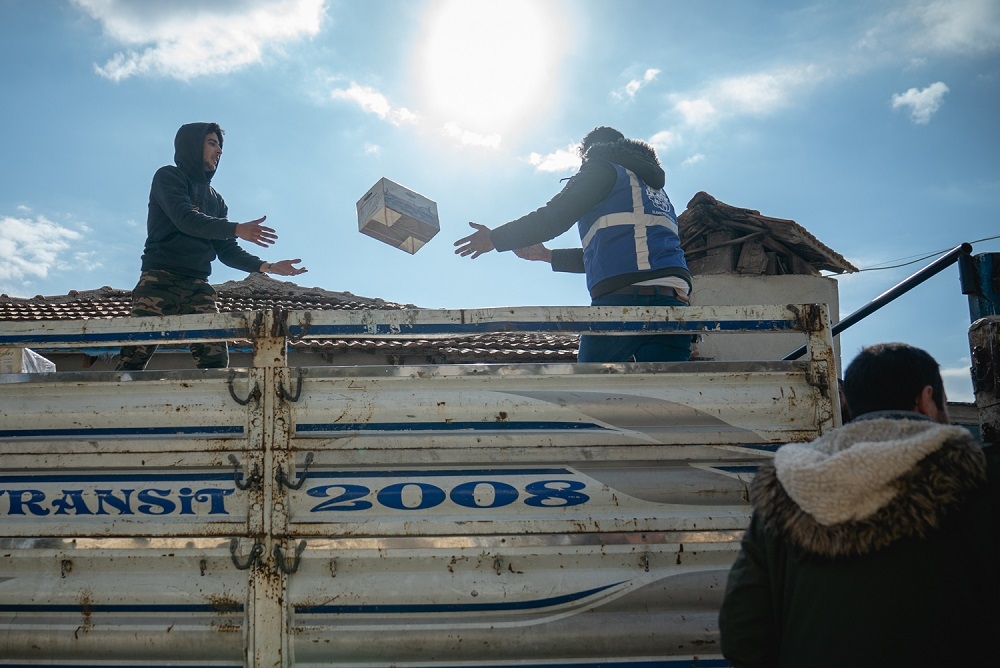
Food distribution by Islamic Relief in Turkiye; image source: IRUSA
Fareeha traveled to Turkey with the group that included HH’s Melanie Elturk less than two weeks after the earthquakes hit. “When I went, it was about day 10 or 11 and very fresh in the immediate response stage of the earthquake, and so still there was immediate recovery work happening. By then – finding someone alive was slim. [It was all about assisting the Turkish government in] setting up tents, food sites and temporary living situations for people who lost everything.”
In her eight years with IRUSA, Fareeha has assisted in numerous crisis situations and natural disaster campaigns, soliciting donations through a mix of sharing stories and creating photo and video assets so that people who are far removed can understand and feel the impact of the situation at hand. And, while our communities are often moved to offer support and donate in the immediate aftermath of such crisis events, sustaining that kind of support becomes challenging as the weeks pass.
The need, however, remains immense with no sight of lessening anytime soon.
“There were people who fled, their buildings were unlivable. How can we get those people back? Cities that were completely destroyed either by the earthquake or demolished because they were no longer fit for habitation. How will these cities be rebuilt?” Fareeha asks.
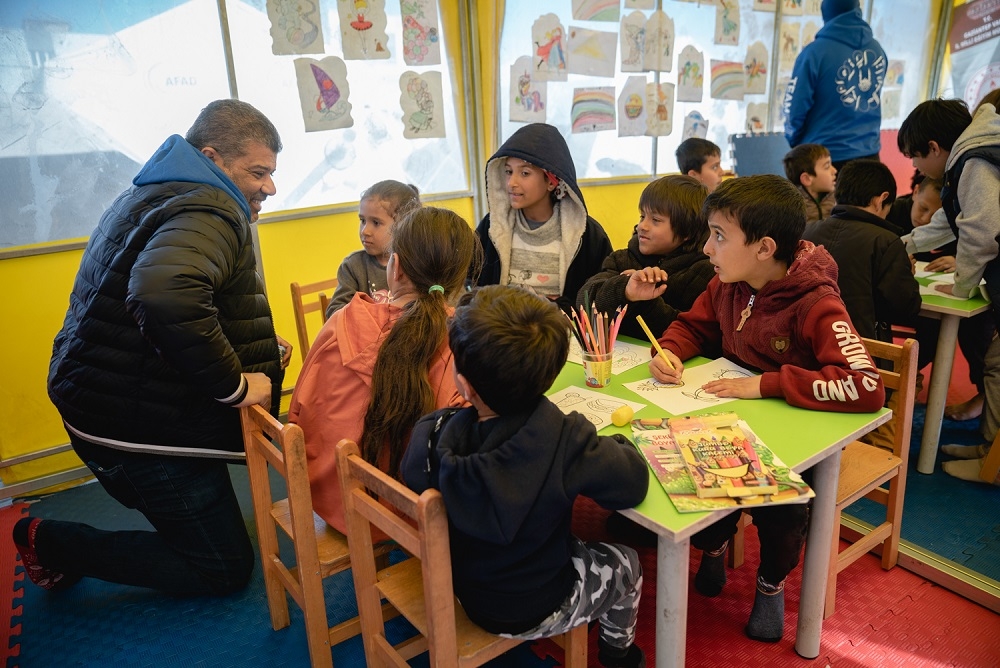
Image source: Islamic Relief USA
“[Islamic Relief] has multiple sectors that we are working in – health, education, building shelters, livelihood programs, mental health psychosocial support (mhpss),” Fareeha says, adding that one of the biggest long-term goals is to find ways “we can help people get out of their situation and not be dependent on us and other organizations to give them aid, but be able to depend on themselves.”
Who Helps the Helpers?
This kind of work – disaster relief aid – takes an immense amount of strength and fortitude for those on the ground and in direct contact with survivors of different crisis events, and for those back in the home offices of charity organizations like IRUSA, who are working to tell the stories, coordinate the relief work, plan out mid-term and long-term projects and manage the donation campaigns needed for this work to continue.
The Islamic Relief team themselves lost staff and staff family members in the earthquakes. The work was so intense in the aftermath that aid workers were sleeping in cars as they worked in shifts to pull people out of the rubble, set up medical and food sites and temporary housing, hand out clean water, food, blankets, coats and other things that were immediately needed.
“On the ground, after the first initial days, [IR brought in] staff [who were working on other projects] to relieve the existing ones. For example, we had a few whose job roles were orphan teams. But in emergency times in Gaziantep, they came to help with food distribution,” Fareeha explains. Aid workers, along with earthquake survivors, were also offered counseling to help them process trauma.
“Even here [in the United States, removed from the crisis], we are told from an HR perspective to take the time that you need. Counselors are available, especially when you go on a trip; they recommend you come and see counselors.”
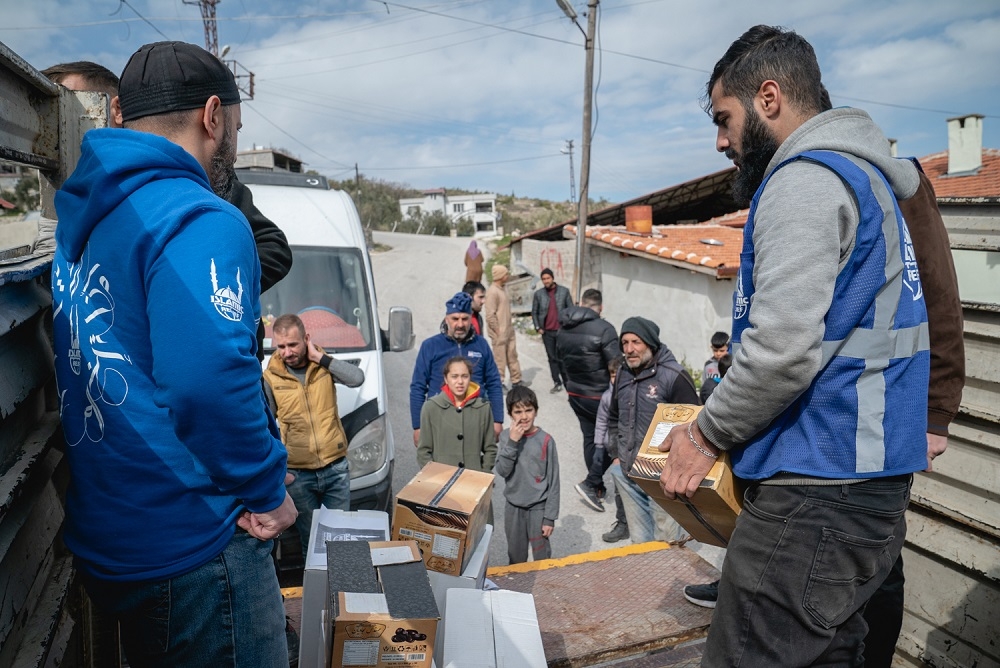
Image source: IRUSA
I wondered how staffers like Fareeha cope with doing this kind of work. Do they ever become overcome by their emotions? Nearly a decade ago I also worked for IRUSA as their website content coordinator, and admittedly I struggled at times with the ongoing work of supporting those in need and sharing their stories. The pain and suffering I witnessed from afar was a lot to carry at times. And then I felt guilty for even feeling emotional when the survivors of such crisis events truly were immersed in life-and-death struggles.
Fareeha says that in this line of work, responding to disasters is something “we see and respond to regularly, and so we get used to it. Like doctors continue to see sick and dying patients all the time. It’s not that we don’t want to be emotional, but there is a level of having to be composed to be able to do the work. If you’re going to get emotional every time you go into the field, it won’t help. When you go into the field, those you are helping have experienced the worst of pain and loss.
“Being emotional is warranted no doubt,” she says. “But in the line of work, you have to get used to it and get acclimated to the work.”
Things that can be triggering is when you find a personal connection, Fareeha says. “One year I went to Bosnia, and there was this elder care program I was helping with, and that year my grandmother had died. I felt that deeply.”
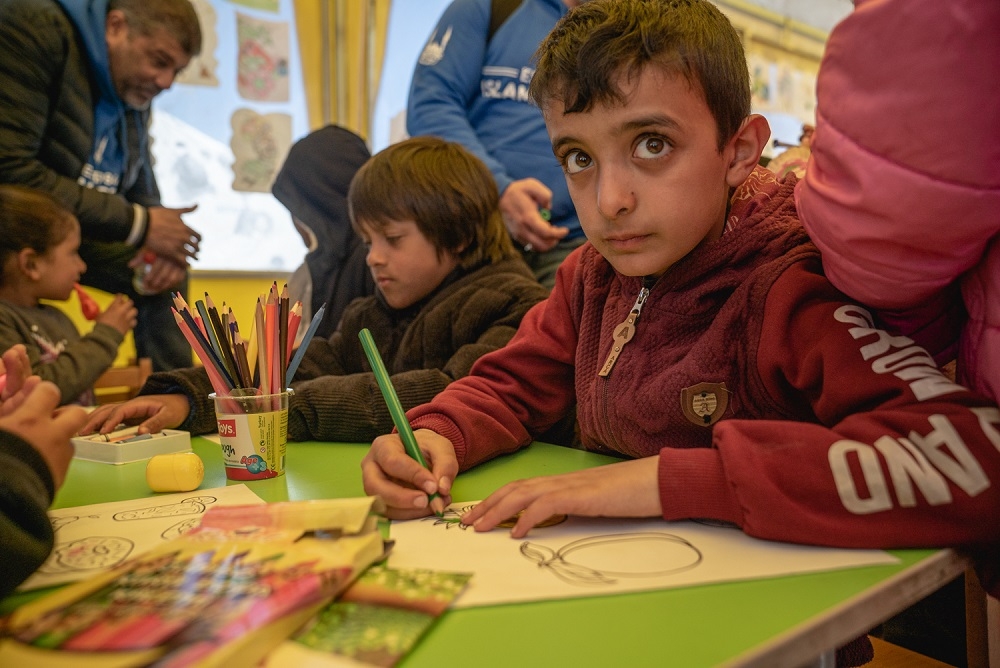
Image source: IRUSA
We hold immense admiration for Islamic Relief, IRUSA and organizations like them, who rush in to help in times of acute crisis and devastation. And, with Ramadan drawing to an end, we appeal to you to not let the stories and strength of those who have survived these earthquakes in Turkey and Syria fade away. The work is only getting started.
Please donate generously to help the survivors of these earthquakes rebuild their lives. Our fellow Turkish and Syrian Muslim brothers and sisters need our help. In these last precious days and nights of Ramadan, reap the barakah of helping someone else, and donate whatever you can.
Subscribe to be the first to know about new product releases, styling ideas and more.
What products are you interested in?

